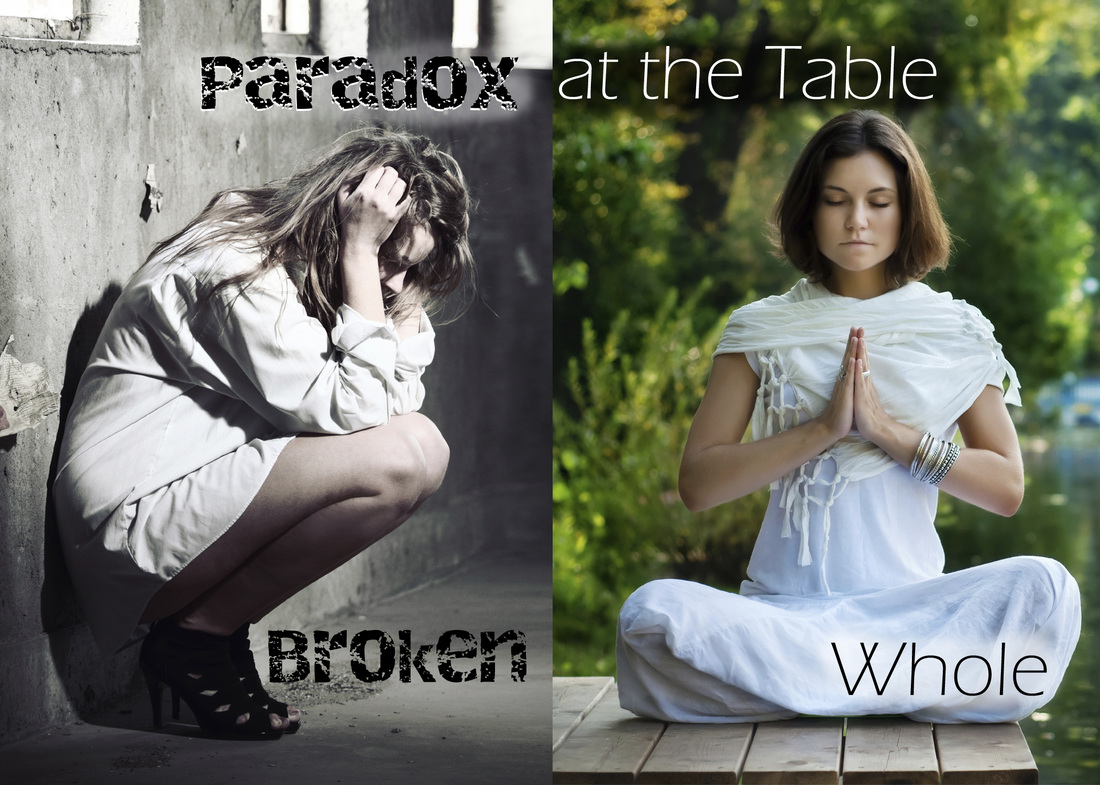(This meditation is the third of a series regarding the communion table) The health of the table appears to be a paradox. We are called to wholeness, and at the same time called to brokenness.
The bread is broken. Paul tells the Corinthians that we are all part of the Body of Christ. Need we not forget, Jesus, at the communion table lifts the bread and says, "This is my body broken for you." Wellness is usually follows a path of first being broken. Consider healthy brokenness. When a bone in the body heals incorrectly it must be re-broken in order to be reset. In the same way there comes times when our soul heals incorrectly and it too must be broken again to be reset and heal correctly. Take Jonah for example. As a prophet, someone who is told to tell the people something and they do, Jonah didn't want to listen. God put him in the belly of a big fish and after he was suitably broken he did what was right. When light is needed right away a light stick has a tube of glass in it separating two chemicals. When the glass inside is broken the two liquids mix together creating light. In the same way there comes times when people can break through barriers to connect with those we haven't been able to before, allowing God's light to shine. Jesus broke barriers all the time and usually at a meal. He ate with Jewish leaders, tax collectors, Gentiles, the good, the bad and the multitude. The cup is whole. Throughout the text of communion the cup remains whole and connected. We, as participants are asked to take from it, but the cup never breaks. Jesus gave us many images of wholeness. My favorite is the parable of the sheep. If a shepherd has 100 sheep and loses one, would he not go out and find the one? (The answer is yes. The shepherd would go out and find the one, because God wants wholeness.) My second favorite is the prodigal son, a story about a son who leaves the parent only to discover everything he really needs is home. The parent welcomes the child back with loving and open arms, just as God welcomes us back when we turn away. Just like brokenness, wholeness can hurt. From the perspective of the 99 sheep or the son who stayed home, it can be difficult to see God's reasoning for wanting complete redemption and not just the "faithful." (Yes, I put that in quotations for a reason.) The Christian Church (Disciples of Christ) believes in an open table. All are invited to participate in communion. For me this is just an obvious truth. It is not I or any other person who invites people to the table. It is God who sends the invitations, we are just the party hosts. Humanity is not in control. We pretend we have control. We attempt to take the reins, but our attempts are false. Just as it is not a church or a group of people who have and will employ me. God is my employer. It is the people who are in the accounting department. We may own the wood or metal used to make the communion table. Someone might have bought the bread and juice. The table clothe might have been donated by a modern saint of the church, but God is the ultimate owner of it all. Next Week: How can we resolve how the table as both a sacrifice and a meal? |
Categories
All
Archives
October 2023
|




 RSS Feed
RSS Feed